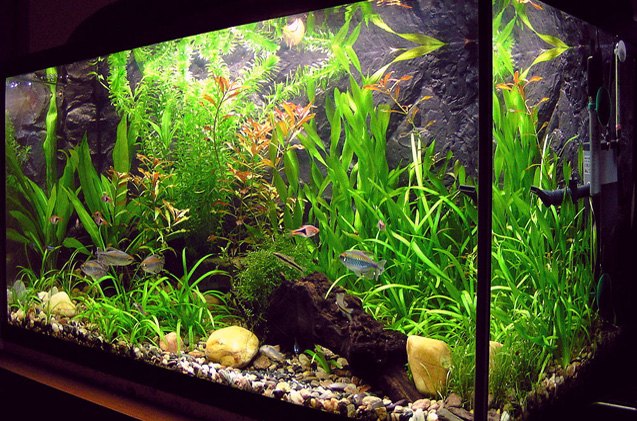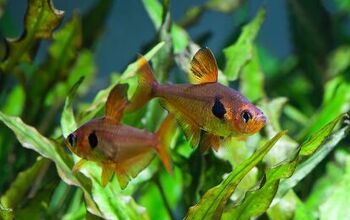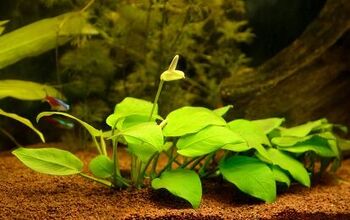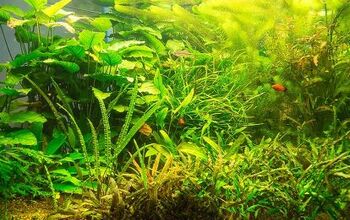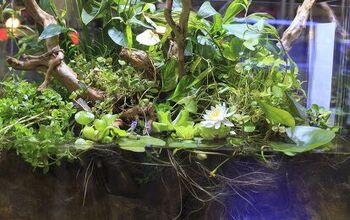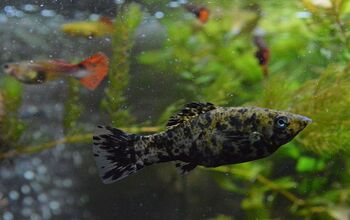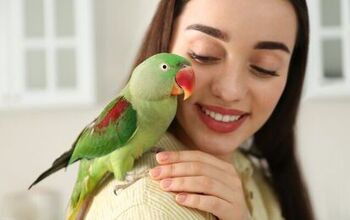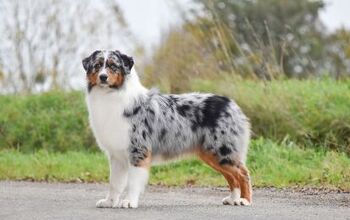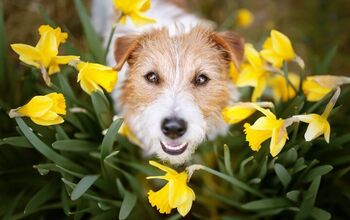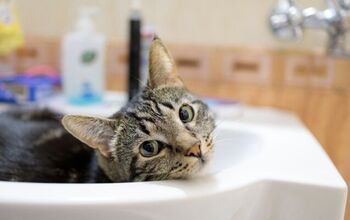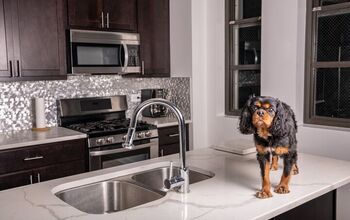Top 5 Fast-Growing Aquarium Plants for Planted Tanks


The key to keeping your planted tank looking lush is to stock it with plants that grow quickly. Some plants simply grow more quickly than others or are more likely to thrive in certain conditions.
The obvious reason that most aquarium owners are drawn to fast-growing plant options is, as we mentioned already, due to impatience. No one wants to stare at an empty tank for long. However, there may be some more practical reasons to incorporate these plants into your live plant aquarium.
Live plants play an important role in the ecosystem of our aquarium spaces by providing oxygen, reducing CO2 levels, and absorbing nutrients from the substrate. All these functions work together to create a self-sustaining environment that requires minimal maintenance on your part. Unfortunately, that only works when the biological balance of the aquarium has been achieved. This makes it more challenging to keep everything working efficiently together during the early days of plant growth.
For your fish, the plants provide much-needed cover and safety. When feeling unsafe or anxious, fish will try to hide away from the world. As your plants grow and provide the sense of security that they need, you will see them start to emerge more in the tank.
Unfortunately, not all fish are well-suited for a balanced life with grown plants. There are some species of fish that feed directly off the plant life in your aquarium or simply damage them in their daily activities. This doesn’t mean that you can’t incorporate live plants, but it does encourage the use of fast-growing plants. As your fish feed on or remote parts of the plant life in your tank, their rapid growth will fill the gaps quickly to help balance it all out.
Having an assortment of fast-growing plants in your aquarium provides many benefits. Not only will your tank become lushly planted in a shorter period of time, but fast-growing plants will also be able to survive against plant-eating species of fish. If you are looking for fast-growing plants to use in your own planted tank, consider these five species:
This is a type of floating plant that does not need to be rooted in substrate, although you do have the option of rooting it into the substrate if that is what you would prefer for the look of your tank. Also, this freshwater plant is a great choice for beginners, as it is easy to grow and hardy. In fact, Hornwort can be kept in a variety of tank conditions, though strong lighting will ensure the fastest growth.
This plant produces long stems with thin, thread-like leaves and it helps to inhibit algae growth in the tank by competing for nutrients. You only need a little bit of it to start, as it will grow quickly. Experts recommend that, for this plant, you will need a minimum tank size of 15 gallons. The water’s pH should ideally range from 6.0 to 7.5, and the water temperature should range from 59-86°F. Because it can grow tall, you can place it in the back of your tank to serve as a gorgeous background to the other elements in your aquarium.
Related: Top 5 Live Plants to Use in Brackish Aquariums
If you are looking for an aquatic plant with a unique appearance, water wisteria is a great option. This plant produces tall, lace-like leaves and it tends to grow very quickly as a carpet plant. Water wisteria does well in medium lighting and it can be used in the foreground or background of your tank. It should be noted that this plant, when cared for, can grow massively in size. For this reason, there is no need to spend too much money buying multiple stems. Instead, concentrate your effort on a couple of water wisteria strategically placed in the tank to allow room for growth.
This is another great plant to consider for your aquarium if you are a beginner when it comes to maintaining live plants in your tank. It is hardy and easy to maintain, it can tolerate a range of conditions, and it grows quickly, adding a beautiful new element to your aquarium. The minimum tank size for this plant is 10 gallons, the ideal water temperature range is anywhere from 70-82°F, and the pH range is 6.5 to 7.5. Plus, because you can also use this plant as a lush green carpet for the bottom of your tank, you have a lot of freedom to use it in creative ways to enhance the overall beauty of your aquarium.
This plant produces tall, sword-like leaves and it grows fairly quickly in moderate to strong lighting. Amazon sword plants grow up to 20 inches tall which makes them a great choice as a background plant in the planted tank where they can provide cover for timid species of fish. While this tall height can be used strategically, be aware that it can also make it difficult for other plants to thrive in the tank. As the plant grows taller, it may dominate the light coming in, casting shade over the shorter plants that you are trying to grow. For this reason, you need to be strategic with its placement when the plant is still small keeping in mind that it won’t stay small for long.
Also, because this is an amphibious plant, it can grow if it is totally submerged underwater or partially submerged. Ideal water temperature for this plant will be anywhere from 72-82°F, and the recommended water pH for this lovely plant is 6.5 to 7.5. It requires a moderate amount of care, as you should use a fertilizer that is high in iron, and the plant also requires a loose substrate in order to grow well. You can grow it in groups or as single plants, depending on whether you want to have it serve as a focal point or as a background in your aquarium design. And because it can grow rather large so quickly, it does best in large tanks.
Another type of carpeting plant, lilaeopsis only grows about 2 inches tall but it spreads quickly along the floor of your aquarium. This plant prefers medium lighting and it produces thin, grass-like leaves. Lilaeopsis may need to be pruned occasionally, if it starts to grow into other plants.
Overall, this is a popular plant because it is both hardy and it can add a pop of incredible green color to your tank. You can place it in the foreground of your tank to create an eye-catching scene that looks like a lawn underwater. To keep it growing strong, it is best to maintain your water pH anywhere from 5.0 to 7.0, and the water temperature should be within a range of 70-83°F. Just be aware that algae may end up growing on this plant, so adding some shrimp to your tank may help keep the leaves clean and green. And if the plant grows too tall, you can always trim it back.
Related: Top 8 Best Aquarium Plants for Beginners
This plant is another type of floating plant that grows quickly with strong lighting. Amazon frogbit produces small, round leaves that are popular as food for herbivorous species of fish – it can also provide timid fish with a place to hide. Many floating-type plants give off the feeling of a weed, as if they are taking over the tank. This isn’t the case with the Amazon Frogbit. Instead, it offers a beautiful bed of plant life along the top of the water. If you’re searching for an ornamental aquarium plant that will be easy to care for, this is a good way to go.
The water temperature in your tank should range from 64-84°F, and the pH of the water should be anywhere from 6.0 to 7.5. One important consideration when growing Amazon Frogbit is the surface of the leaves themselves. As the surface of the water is disturbed from placing new decorations or from the placement of your filter, this water can find it’s way onto the top of the leaves. When the lives get wet, this can quickly lead to a problem with rotting. For the best growing conditions, ensure that the surface of your tank is calm so that the leaves can stay dry.
Tips for Increasing Plant Growth
Choosing the right species for your planted tank is the most important factor in ensuring optimal growth but there are a few other tricks you can use to keep your planted tank looking lush. Lighting is the simplest way to increase plant growth. While many aquarium plants are able to survive in low lighting, providing moderate to high lighting in your tank will speed up plant growth. Choose full-spectrum lighting and make sure to keep your tank lights on for at least 10, ideally 12 hours per day. Be careful about leaving the lights on for longer than that, however, because it could lead to algae growth.
In addition to increasing your tank lighting, you should also be mindful about making sure that your plants get the proper nutrients. Start with a high-quality planting substrate like EcoComplete or AquaSoil which will provide your plants with macronutrients like potassium and nitrogen. You also need to keep up with regular weekly water changes to ensure that micronutrients (trace elements) in your tank water are available to your plants. Adding supplemental carbon dioxide to your planted tank is another option which might increase plant growth, just be sure not to add too much or you could cause your fish to become overly stressed.
If you want to keep your planted tank looking lush and green, your best bet is to stock it with fast-growing species of plant. You may need to do some occasional pruning to prevent your plants from taking over the tank, but the plant species listed above are at the top of the list for being easy to maintain and fast to grow.

Kate Barrington is the loving owner of two cats (Bagel and Munchkin) and a noisy herd of guinea pigs. Having grown up with golden retrievers, Kate has a great deal of experience with dogs but labels herself a lover of all pets. Having received a Bachelor's degree in English, Kate has combined her love for pets and her passion for writing to create her own freelance writing business, specializing in the pet niche.
More by Kate Barrington



